The realm of artificial intelligence (AI) has witnessed unprecedented growth and innovation over the past few years. From enhancing operational efficiency to revolutionizing customer interactions, AI advancements are reshaping industries across the globe. This article delves into the latest trends, applications, and solutions stemming from AI technologies, particularly focusing on digital transformation and the rise of AI virtual assistants.
AI technologies have evolved significantly, driven by advancements in machine learning, natural language processing, and data analytics. These innovations empower businesses to automate processes, gain insights from vast data sets, and improve decision-making. As a result, organizations are increasingly adopting AI solutions to stay competitive in a rapidly changing marketplace.
One of the most notable trends in AI is its role in digital transformation. Companies are leveraging AI to not only enhance their existing processes but also to redefine their business models. According to a report by McKinsey, organizations that integrate AI into their operations can achieve productivity gains of up to 40%. This statistic underscores the potential of AI to drive efficiency and innovation.
AI digital transformation encompasses a wide range of applications, from predictive analytics to customer service automation. For instance, businesses are utilizing AI algorithms to analyze consumer behavior and forecast market trends. This data-driven approach enables companies to make informed decisions and tailor their offerings to meet customer demands. Additionally, AI-powered tools can streamline supply chain management, optimize inventory levels, and enhance logistics operations.
The integration of AI in customer service has been particularly transformative, with AI virtual assistants leading the charge. These digital agents can handle a variety of tasks, from answering customer inquiries to processing transactions. According to Gartner, by 2025, 75% of customer service interactions will be powered by AI virtual assistants, highlighting their growing importance in the customer experience landscape.
AI virtual assistants are designed to understand and respond to human language, making them invaluable for businesses seeking to improve customer engagement. These assistants leverage natural language processing (NLP) to interpret user queries and provide relevant responses. For example, companies like Amazon and Google have developed advanced virtual assistants, such as Alexa and Google Assistant, which can perform a myriad of tasks, from setting reminders to controlling smart home devices.
The benefits of AI virtual assistants extend beyond customer service. They can also enhance internal operations by assisting employees with routine tasks. For instance, AI assistants can schedule meetings, manage emails, and provide real-time data analysis, allowing employees to focus on more strategic initiatives. This dual functionality not only improves productivity but also fosters a more collaborative work environment.
As organizations embrace AI advancements, they must also address the challenges associated with implementation. Data privacy and security are paramount concerns, particularly as AI systems often rely on vast amounts of personal information. Businesses must ensure compliance with regulations such as the General Data Protection Regulation (GDPR) and implement robust security measures to protect sensitive data.
Moreover, the successful integration of AI technologies requires a cultural shift within organizations. Employees must be equipped with the necessary skills to work alongside AI systems, and companies should foster an environment that encourages innovation and experimentation. Training programs and workshops can help bridge the skills gap and prepare the workforce for the AI-driven future.
In addition to customer service and operational efficiency, AI advancements are making significant strides in various industries, including healthcare, finance, and retail. In healthcare, AI algorithms are being used to analyze medical images, predict patient outcomes, and personalize treatment plans. For instance, IBM Watson Health utilizes AI to assist doctors in diagnosing diseases and recommending treatment options based on patient data.
In the finance sector, AI is transforming risk assessment and fraud detection. Financial institutions are employing machine learning models to analyze transaction patterns and identify anomalies that may indicate fraudulent activity. This proactive approach not only enhances security but also improves customer trust and satisfaction.
The retail industry is also benefiting from AI advancements, particularly in enhancing the shopping experience. AI-powered recommendation engines analyze customer behavior and preferences to provide personalized product suggestions. Additionally, retailers are utilizing AI to optimize inventory management and streamline supply chain processes, ensuring that products are readily available to meet customer demand.
As AI technologies continue to evolve, the future of digital transformation looks promising. Organizations that embrace AI advancements will be better positioned to adapt to changing market dynamics and meet the evolving needs of their customers. The integration of AI virtual assistants will further enhance customer interactions, providing seamless and efficient service.
In conclusion, AI advancements are driving a new era of digital transformation across industries. From improving operational efficiency to redefining customer engagement, AI technologies are reshaping the way businesses operate. As organizations continue to explore the potential of AI, it is essential to address the challenges associated with implementation and foster a culture of innovation. By doing so, businesses can harness the power of AI to unlock new opportunities and drive sustainable growth.
**Sources:**
1. McKinsey & Company. (2021). “The State of AI in 2021.”
2. Gartner. (2021). “Gartner Says 75% of Customer Service Interactions Will Be Powered by AI by 2025.”
3. IBM Watson Health. (2021). “AI in Healthcare: Transforming Patient Care.”
4. Deloitte Insights. (2021). “AI in Retail: How AI is Transforming the Retail Industry.”































